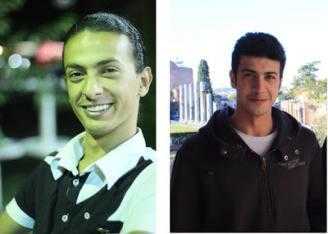Länderberichte und aktuelle Informationen: Egypt
1 Conscription
conscription exists
According to art. 58 of the constitution, "Defence of the homeland and its territory is a sacred duty and conscription is compulsory, in accordance with the law". Military service is regulated by the 1980 Military and National Service Act no. 127. [8]
military service
All men between 18 and 30 are liable for military service, which lasts for 3 years. [13] [14] [3] [6]
Graduated students serve for a period of 18 months. [6]
After serving, conscripts belong to the reserves for 7 years. [3]
postponement and exemption
Postponement is possible for students for the duration of their studies or until they are 28, and for various domestic reasons. Sons of retired men are exempted as long as an older brother is at service. [5] [6] [7]
Exemption from military service is possible for Jews, those with physical or mental disabilities, only sons of a family, and sons of Egyptian military killed during the 1973 war with Israel. [2] [5] [6] [7]
recruitment
If the number of conscripts exceeds the number needed in a given year, the Egyptian authorities may exempt the superfluous conscripts by drawing lots. [6]
According to the Egyptian Organisation for Human Rights, "those suspected of being members of the outlawed Islamic militant groups (...) are excluded from military service." [12]
2 Conscientious objection
There is no legal provision for conscientious objection and no substitute service. [2] [13] [7]
In 1991 at least 20 persons were detained not for conscientious objection, but for speaking out against Egyptian participation in the Gulf War. [4]
3 Draft-evasion and desertion
penalties
Refusal to perform military service is punishable by a year's imprisonment and a fine. [13]
Also they may be punished by a prolongation of their military service for one year in the case of graduated students and for three years in other cases. [7]
Draft evaders and deserters who have fled abroad cannot renew their passports. [7]
practice
Draft evaders and men of conscription age are not allowed to travel abroad. In order to obtain a passport all men must must prove they have completed military service or have been exempted. [9] [11]
The number of draft evaders is not known, but according to Agence France Presse in 1993 more than 4,000 draft evaders were arrested by the security forces. [10]
Those who have acquired double nationality or who are over 30 and have avoided military service may get exempted but must pay a fine. [6]
5 History
National service was introduced in 1955. [3]
During the wars with Israel, many fled abroad to avoid conscription. Two Egyptian conscripts who had refused to participate in the war were not granted asylum in the Netherlands and were expelled in 1972. [1]
6 Annual statistics
The armed forces comprise 450,000 troops, including some 320,000 conscripts (71 percent). They form 0.7 percent of the population. There is a 254,000 strong reserve force. [14]
Every year approximately 585,000 men reach conscription age. [14]
Sources
[1] Krieken, P.J. van 1976. Deserteurs, dienstweigeraars en asielrecht. Van Gorcum, Assen, Netherlands. [2] Eide, A., C. Mubanga-Chipoya 1985. Conscientious objection to military service. United Nations, New York. [3] Société I3C 1987. Military Powers, the league of Arab states, vol 2. Société I3C, Paris, France. [4] 'You can jail the resister but not the resistance', in: Peace News, 1 March 1993. London, UK. [5] DIRB 1991. Telephone interview with a representative of the Embassy of Egypt in Ottawa, 14 May 1991. [6] DIRB 1991. Telephone interview with a representative of the Arab League, Ottawa, 14 May 1991. [7] IRBDC 1992. Telephone interview with a representative of the Embassy of Egypt in Ottawa, 12 and 14 May 1992. [8] UN Commission on Human Rights 1992. Report of the Secretary-General prepared pursuant to Commission resolution 1991/65 (and 3 Addendums). United Nations, Geneva. [9] IRBDC 1993. Telephone interview with a representative of the Embassy of Egypt in Ottawa, 16 November 1993. [10] Agence France Presse (AFP), 27 May 1993. [11] US State Department 1997. Country reports on Human Rights Practices for 1996. Washington DC. [12] IRBDC 1997. Letter from Egyptian Organisation for Human Rights, 5 April 1997. [13] UN Commission on Human Rights 1997. The question of conscientious objection to military service. United Nations, Geneva. [14] Institute for Strategic Studies 1997. Military Balance 1997/98. ISS, London, UK.
Recent CO action alerts: Egypt
Recent stories on conscientious objection: Egypt
von No to Compulsory Military Service Movement
Über 30 Friedens- und Menschenrechtsorganisationen haben ihre Unterstützung und Solidarität mit der ägyptischen „Nein zu militärischem Zwangsdienst – Bewegung“ und dem KDVer Mark Nabil Sanad erklärt. Das Statement (in Englisch) kann hier gelesen werden. Du kannst es mit Deiner Unterschrift unterstützen.
Organisationen senden bitte einen Brief an NoMilService@gmail.com.
Einzelpersonen benutzen bitte diesen link.
Internationale Erklärung
Wir, Friedens- und Menschenrechtsorganisationen, erklären hiermit unsere Unterstützung und Solidarität mit der Bewegung Nein zum Kriegsdienstzwang und dem ägyptischen Kriegsdienstverweigerer Mark Nabil Sanad. Wir verurteilen das Schweigen der ägyptischen Behörden zum Leiden der Kriegsdienstverweigerer. Wir rufen die ägyptischen Behörden auf, Marks Bürgerrechte wiederherzustellen und das Recht auf Befreiung vom Militärdienst aufgrund seiner Überzeugungen als Kriegsdienstverweigerer anzuerkennen.
Wir, die Bewegung No to Compulsory Military Service (Nein zum Kriegsdienstzwang - Ägypten) und New Profile (Israel), unterstützen in beiden Ländern Frieden und Kriegsdienstverweigerung. Wir betonen das Menschenrecht auf Gewissens- und Religionsfreiheit sowie Selbstbestimmung. Wir verurteilen den Weg, den die Regierungen beider Länder eingeschlagen haben, um Kriegsdienstverweigerer zu behandeln, wie Natan Blanc, Emad el Dafrawi und Mohamed Fathy.
Maikel Nabil Sanad, weiter in Hungerstreik, tritt erneut in Durststreik
(08.09.2011) Die Unterstützungsgruppe von Maikel Nabil Sanad teilte mit, dass das Militär inzwischen die Berufungsverhandlung des ägyptischen Kriegsdienstverweigerers und Militärkritikers auf den 1. November 2011 festgelegt hat. Connection e.V., die War Resisters‘ International (WRI) und die Deutsche Friedensgesellschaft – Vereinigte KriegsdienstgegnerInnen (DFG-VK) Hessen fordern hingegen weiter die unverzügliche und bedingungslose Freilassung, da das Urteil in eklatanter Weise die Menschenrechte missachtet.
Die War Resisters' International fordert die Freilassung des ungerechterweise inhaftierten Bloggers
Die War Resisters' International, ein internationales pazifistisches Netzwerk mit mehr als 80 Mitgliedsorganisationen in mehr als 40 Ländern, fordert die ägyptischen Behörden auf, den inhaftierten pazifistischen Blogger Maikel Nabil Sanad unverzüglich frei zu lassen. Maikel Nabil Sanad wurde Ende März 2011 festgenommen, und zu drei Jahren Haft verurteilt. Ihm wurden die Verletzung von Artikel 184 des ägyptischen Strafgesetzes, welcher die "Beleidigung des Volksversammlung, des Shura Rates oder jeglicher anderer staatlichen Behörde, oder der Armee oder der Gerichte" unter Strafe stellt, sowie von Artikel 102, "Verbreitung falscher Informationen". Sein Gerichtsverfahren vor einem Militärgericht und seine Verurteilung entsprachen nicht internationalen rechtlichen Standards [1].
Die War Resisters’ International, Connection e.V. und die DFG-VK Hessen rufen zu einem Internationalen Aktionstag für den inhaftierten ägyptischen Kriegsdienstverweigerer, Militärkritiker und Blogger Maikel Nabil Sanad auf. Wir bitten Gruppen und Organisationen, sich am 2. September 2011 gemeinsam mit uns einzusetzen: Freiheit für Maikel Nabil Sanad!
Ägyptischer pazifistischer Blogger zu drei Jahren Gefängnis wegen “Beleidigung des Militärs” verurteilt
Repression im (nach)-revolutionären Ägypten
Am 7. März, wenige Wochen nach der Abdankung des ägyptischen Diktators Hosni Mubarak, schrieb Maikel Nabil Sanad diesen Satz in einem ausführlichen Artikel auf seinem Blog [1]. In diesem Artikel analysierte er detailliert die Rolle des ägyptischen Militärs während und nach der Revolution und kam zu dem Schluss, dass das Volk und das Militär niemals „eine Hand waren“ - wie es während der Revolution so oft hieß.
War Resisters' International, ein internationals Netzwerk antimilitaristischer und pazifistischer Organisationen mit mehr als 80 Mitgliedsorganisationen in über 40 Ländern ist besorgt über die Verhaftung des ägyptischen Pazifisten und Kriegsdienstverweigerers Maikel Nabil Sanad.


